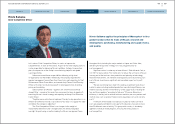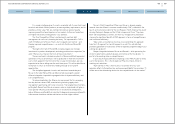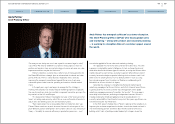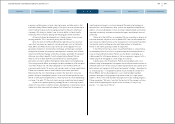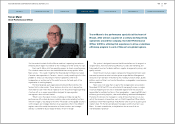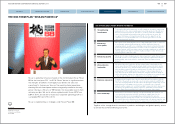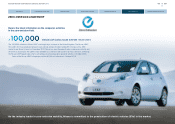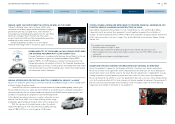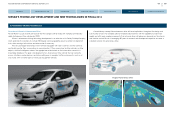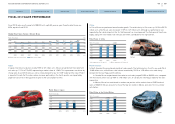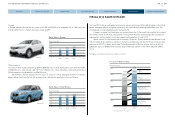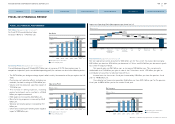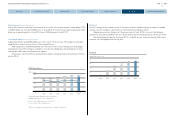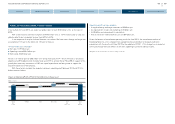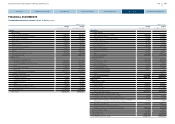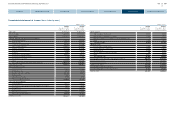Nissan 2014 Annual Report Download - page 21
Download and view the complete annual report
Please find page 21 of the 2014 Nissan annual report below. You can navigate through the pages in the report by either clicking on the pages listed below, or by using the keyword search tool below to find specific information within the annual report.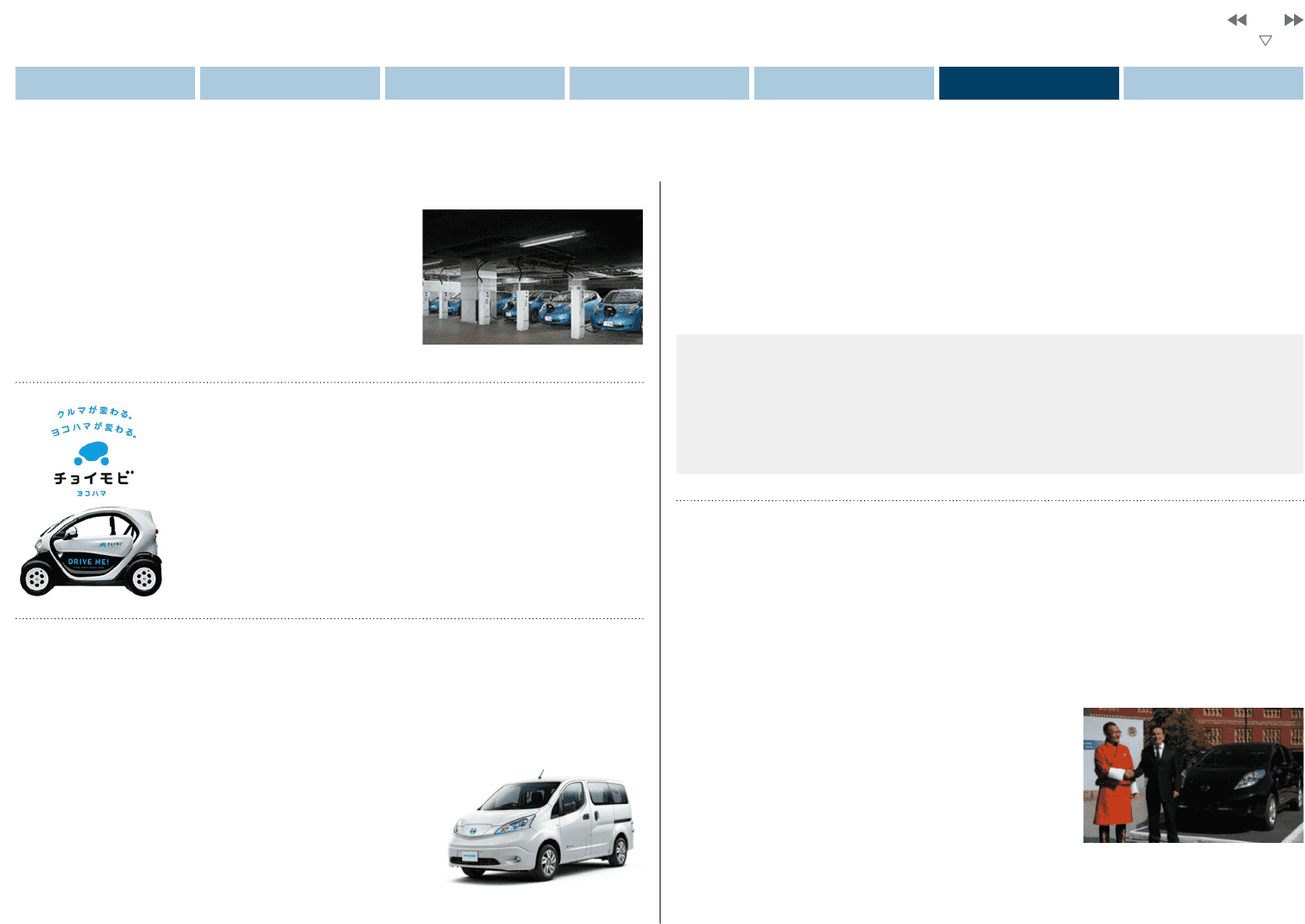
NISSAN LEAFS CAN NOW POWER THE OFFICE, AS WELL AS THE HOME
“Vehicle-To-Building" allows up to six Nissan LEAFs to be
connected to a building's power distribution board. Charging is
phased during the day so at peak hours, when electricity is
most expensive, the building draws power from the cars. When
electricity is cheaper it flows the other way. The system
ensures the Nissan LEAFs are fully charged by the end of the
working day for their owners to drive home.
“Vehicle-To-Building" has been in use at the Nissan
Advanced Technology Center in Atsugi City, Japan, since July.
NISSAN INTRODUCES ITS FIRST ALL-ELECTRIC COMMERCIAL VEHICLE “e-NV200”
Nssan's first all-electric, zero-emissions commercial vehicle, the e-NV200, will go on sale in October 2014
at Nissan dealers throughout Japan.
The e-NV200 is Nissan’s second mass-market, all-electric model available globally, following the
Nissan LEAF, which has now sold more than 100,000 (as of Jan.2014) units worldwide. Compared to
commercial vehicles that use internal combustion engines, the e-NV200 reduces operating costs and
contributes to improving the company’s environmental image thanks
to the vehicle’s zero exhaust emissions as well as a reduction in noise
pollution. The Nissan LEAF is fun to drive, offering smooth, strong
acceleration, great handling and a quiet interior with no engine noise.
With the inclusion of a hydraulic brake system, the vehicle’s
regenerative braking can work more effectively, enabling a driving
range of 185 to 190 km on a full charge (on JC08 mode).
NISSAN AND CITY OF YOKOHAMA LAUNCH JAPAN’S FIRST-EVER
CAR SHARING PROGRAM WITH ULTRA-COMPACT EVs
Choimobi Yokohama is a combined effort between Nissan Motor Co., Ltd. and
the City of Yokohama as part of the Yokohama Mobility Project ZERO
program (YMPZ). The YMPZ program is aimed at increasing low-emission
transportation options for residents of the city. The Choimobi Yokohama plan
is designed to be a one-way car sharing service that enables EVs to be rented
from and returned to any of 45 car pickup/return stations that will be located
in the downtown core in Yokohama.
TOYOTA, NISSAN, HONDA AND MITSUBISHI TO PROVIDE FINANCIAL ASSISTANCE FOR
ELECTRIC VEHICLE CHARGING INFRASTRUCTURE IN JAPAN
Toyota Motor Corporation, Nissan Motor Co., Ltd., Honda Motor Co., Ltd., and Mitsubishi Motors
Corporation jointly announced their agreement to work together to promote the installation of
chargers for electric-powered vehicles (PHVs, PHEVs, EVs) and build a charging network service that
offers more convenience to drivers in Japan. They also established a new company, Nippon Charge
Service, LLC.
NISSAN AND BHUTAN PARTNER ON BREAKTHROUGH NATIONAL EV STRATEGY
Nissan has pledged its support for the Kingdom of Bhutan's transition to an electric vehicle fleet.
Nissan has entered into an agreement with the Royal Government of Bhutan with the shared goal of
achieving the nation's eco-friendly vision for the future. Bhutan's government is targeting EVs as a key
strategy to achieve its goal of becoming a zero emissions nation. As a first step in the cooperation,
Nissan will deliver Nissan LEAFs for use in the government fleet, and as taxis, as well as demonstration
units for the national rollout of EVs. Quick chargers will also be supplied to implement the government's
plan for infrastructure covering the entire Himalayan nation. Feasibility studies for further technical
cooperation are included in the details of the agreements.
This company has the following goals:
1. Promote installation of chargers in Japan
2. Promote charger installation by temporarily bearing part of the installation and maintenance costs
3. Build a charging infrastructure network which enables customers to use their PHVs, PHEVs and EVs more
conveniently
4. Work with government agencies and local governments
20
NISSAN MOTOR CORPORATION ANNUAL REPORT 2014
PERFORMANCE
CONTENTS
CORPORATE FACE TIME
CEO MESSAGE
EXECUTIVE PROFILE
NISSAN POWER 88
CORPORATE GOVERNANCE


